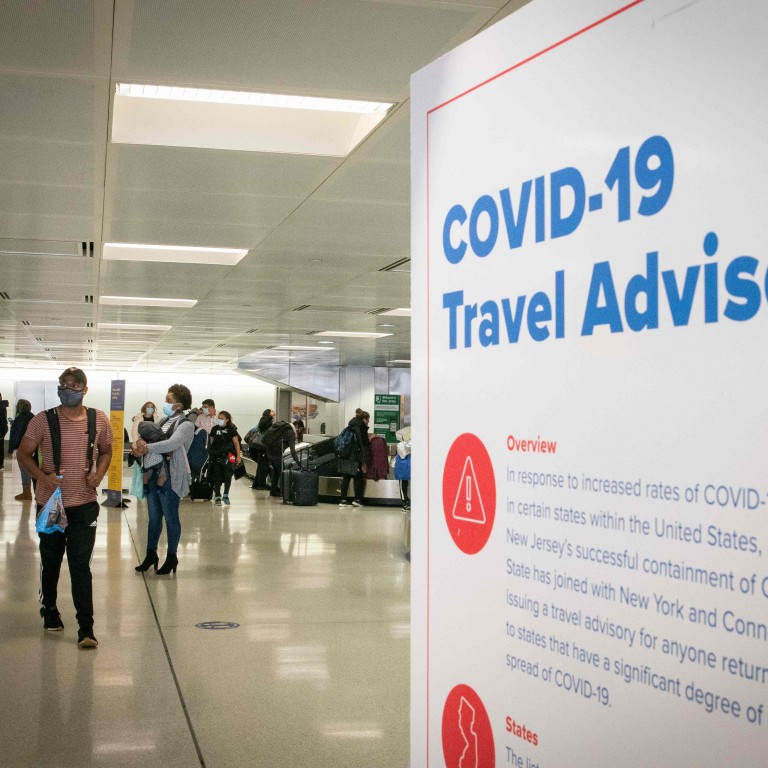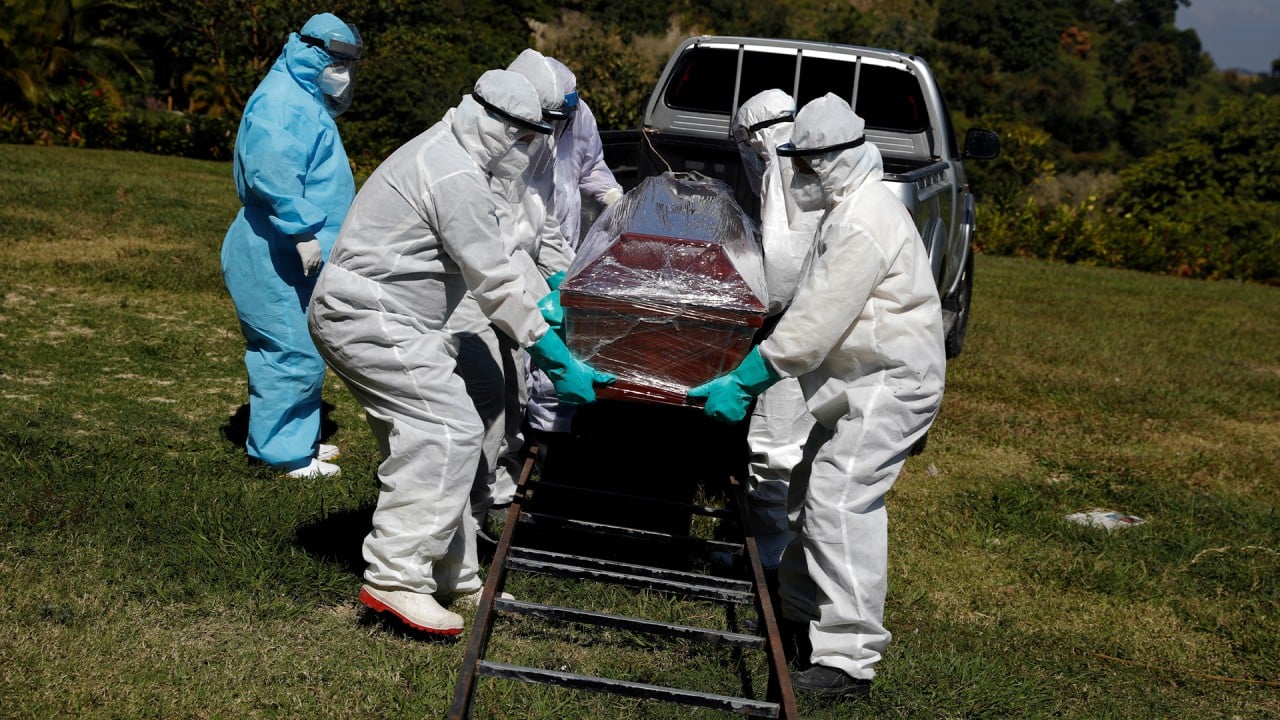
Joe Biden to block Donald Trump plan to lift Covid-19 travel restrictions on Europe, Brazil
- Trump announces restrictions imposed on people travelling from Europe and Brazil will be lifted from January 26
- Biden spokeswoman said the incoming administration planned to block Trump’s move
Trump said in a White House announcement Monday that the bans could be lifted because of a decision last week by the administration to require international travellers to present either the results of a negative recent coronavirus test or evidence that they had already recovered from the disease. The change would go into effect starting January 26, six days after Biden takes office.
But Jen Psaki, a spokeswoman for Biden, said the incoming administration planned to block Trump’s move.
“On the advice of our medical team, the Administration does not intend to lift these restrictions on 1/26. In fact, we plan to strengthen public health measures around international travel in order to further mitigate the spread of COVID-19,” she tweeted.
Trump said in a White House announcement that the moves could be eased safely.
“This action is the best way to continue protecting Americans from Covid-19 while enabling travel to resume safely,” Trump said in a proclamation rescinding the order. Under his plan, travel bans would remain in place for China and Iran, the White House said, citing their “lack of cooperation” with the US in fighting the virus.
The airline industry and European countries have been lobbying the White House to end the blanket bans – first implemented last March – arguing testing standards and increased vaccination rates should allow the US to roll back the travel prohibition.
But Trump’s effort to roll back travel restrictions comes after the discovery of a new, more contagious variant of the coronavirus was discovered initially in the UK. Sequencing has subsequently shown the new strain of the virus circulating in other countries, including the US.
Donald Trump’s coronavirus legacy: 400,000 dead on his watch
The move also comes as the US. has reported more than 24 million cases of coronavirus, and the deaths of nearly 400,000 Americans infected with the disease.
The recent decision by the Centres for Disease Control and Prevention to require a negative Covid-19 test for people arriving in the US from other countries wasn’t directly linked to the travel ban, but it was seen as a way to impose safety restrictions that would allow for a resumption of travel.
Because the virus has been running rampant in the latest surge in the US, experts conclude that allowing people into this country from other nations wouldn’t pose a significant risk, especially with new testing requirements, said one person familiar with the debate.

01:59
Worldwide coronavirus death toll nears 2 million
Martin Centron, the CDC’s director of the division of global migration and quarantine, said last week the new testing measures would allow for expanded travel.
“Protecting the global public’s health while minimising the interference to travel and trade is essentially our goal,” Centron said. “This testing order is really a recognition and another step in that direction.”
Brazil’s Jair Bolsonaro speeds up vaccine plan as his popularity takes a hit
The removal of the travel ban wouldn’t completely free people to travel to all destinations. The UK, for example, still has a requirement for people to self-isolate upon arrival, which has made it all but impossible to travel there for business or holidays.
The restrictions were first put in place on March 11 in the early days of the pandemic after Trump issued a proclamation banning entry to nearly all non-US citizens who had travelled to 28 European nations, China and Iran. It was expanded to Brazil on May 25.
The ban applies to any foreign nationals who had been in any of those nations within the previous 14 days.
Within months, airlines began seeking ways to lessen the ban or to remove it completely as it crippled their profitable routes across the North Atlantic.
Even as passenger numbers have rebounded gradually, travel across the Atlantic is running at about 15 per cent of where it was a year ago, according to Airlines for America. By comparison, domestic traffic in recent weeks has hovered between 40-50 per cent of last year.

